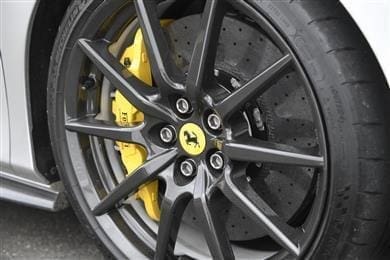Henkel, a global leading provider of high-impact solutions based on adhesives, sealants and functional coatings, has reached a strategic material supply agreement with Carbon Revolution, the world-leading Australian manufacturer of one-piece automotive carbon composite wheels. The collaboration includes dedicated manufacturing facilities established at Henkel’s existing plant near Melbourne.
The global automotive industry is seeking lightweight solutions. When it comes to wheels, which represent some of the most important mass on a vehicle due to their rotating, unsprung nature, one-piece carbon composite technology is an emerging choice for global car makers. Single piece carbon fibre composite wheels can offer up to 40 – 50 percent weight savings relative to conventional aluminium wheels and an attractive surface finish.
“Based on a number of years of close collaboration with Carbon Revolution, we have extended our proven portfolio of composite material technologies to create proprietary solutions that meet the demanding performance specifications of the global car makers,” says Konrad Brimo Hayek, Senior Business Development Manager for Automotive Components at Henkel. “The collaboration with Carbon Revolution is targeted at providing various global OEM carbon wheel programs with the best solutions available and includes active support from Henkel via dual production capacities in the EU and locally in Australia.”
Carbon Revolution’s Carbon fibre composite wheels are now used on some of the world’s most prestigious sports cars. The significant reductions in unsprung rotational mass translates into immediate vehicle handling benefits, from better steering feel and traction to improved accelerating and braking response thanks to the composite wheels’ lower inertia. In terms of sustainability, the technology can also enhance fuel or electrical power efficiency and help automotive manufacturers reduce the CO2 emission balance of their fleets.
“As lightweighting components, carbon wheels can make a significant contribution to minimizing the energy consumed when spinning the wheels up and dragging them back down every time the car is accelerated or slowed. This saves fuel on combustion engine vehicles and battery power on hybrid and fully electric vehicles, maximizing their range,” adds Carbon Revolution Chief Technology Officer Brett Gass. “Henkel’s advanced material technology also adds to the overall reduction of our carbon wheels in noise, vibration and harshness when compared to steel or aluminum wheels, which means automakers can save weight on additional sound insulation.”

